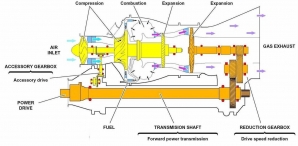Next govt to decide Airport Metro’s dues
Thursday, 15 May 2014 06:55
NEW DELHI: The urban development ministry's push to hold a meeting of the group of ministers (GoM) to take a decision on whether Delhi Metro Rail Corporation (DMRC) could be directed to make termination payment to a subsidiary of Reliance Infrastructure has come unstuck with the cabinet secretariat asking the ministry to leave the decision to the next government.
Sources said after A K Antony , who heads the GoM, questioned the ministry's urgency to hold the meeting, the ministry again took up the case claiming that delay was costing government dearly.
Earlier, the Election Commission had given clearance to hold the GoM meeting.
Sources said the minimum termination payment could have been around Rs 900 crore in case the GoM decided so. As per the contract provision, in case the termination is due to concessionaire's default, the payment would be 80% of the outstanding debt. It will be 130% in case DMRC loses the arbitration case.
Smart passengers, carriers battle baggage blues
Thursday, 15 May 2014 06:54
Shock, anger and frustration — these are stages that many a passenger has gone through when her baggage is damaged, is sent to a wrong destination or lands up with someone else. Incidentally, the number of mishandled pieces of baggage — those that are delayed, damaged or pilfered—has actually come down globally, or so says recently-released data.
While the number of air passengers has grown by about 5 per cent, mishandled baggage has actually dropped by 21 per cent, according to SITA, an IT provider for the air transport sector.
Baggage can be mishandled due to a variety of reasons including problems in transferring or loading, failing to load or even tagging errors, the report says.
“I have had passengers taking my baggage by mistake. Also, on many occasions, the baggage has been badly damaged,” K. Raman (name changed), a frequent flier based out of Chennai says.
Passengers often use coloured tags or paste their names and addresses on the baggage, he says.
“But I must admit that such incidents are not as frequent when compared to five years ago,” he adds.
They occur more often than not in the international flights or the transit ones, an official of Airports Authority of India (AAI) says. It may have come down not only because there is more awareness but also because airlines will have to shell out quite a bit as compensation to passengers.
“The compensation may be based on the weight of the baggage rather than the actual value of the goods,” he adds.
A question commuters in Chennai had once got used to was — “Evalo Thareenga?” (how much will you pay). The introduction of the meter in August last year had opened the possibility of this question and the bargaining that inevitably followed becoming a thing of the past. However, in recent times, bargaining over auto fares has become the norm again, complain commuters.
The relative relaxation in the attitude of transport officials and traffic police due to the elections is perhaps one reason for autorickshaw drivers demanding high fares again. After the government fixed the minimum fare as Rs. 25 for the first 1.8 kilometre and Rs. 12 for every additional kilometre, the transport department cracked down on autorickshaws plying without meters or not turning them on.
However, once election fever gripped Chennai, the heat subsided.
“Some autorickshaw drivers have started demanding exorbitant fares. The police too do not seem too keen to check,” says S. Gunaseelan, a resident of Choolai.
Some policemen however react if they see an autorickshaw driver bargaining with the customer. “This happened at Chintadripet. However, the policeman did not take any action against the driver,” says M. Keerthi, a resident of Mylapore.
Poor monitoring, increase in fuel prices and the delay in the government introducing GPS meters are among the reasons for the drivers reverting to haggling with passengers, say transport experts. “Slowly, autorickshaws without permits will also return. All this will make people feel that it was a gimmick prior to the election,” points out an expert.
Our Packages



News & Events
Chennai International Airport completes its first phase of flood-proofing after deluge last year. Is it enough?
Monday, 14 November 2016 05:40
The employees of the Chennai International Airport can’t forget how water engulfed the tarmac on December…Nine flights diverted over Delhi smog
Monday, 07 November 2016 05:49
JAIPUR: Nine flights, including three chartered planes were delayed by 4-5 hours from landing in Delhi…From The Blog

